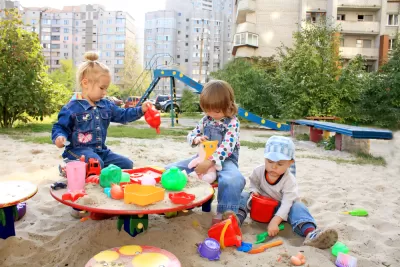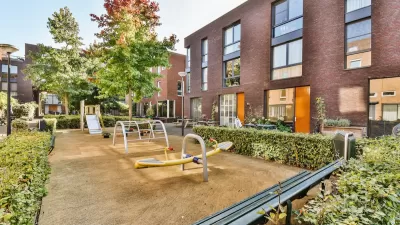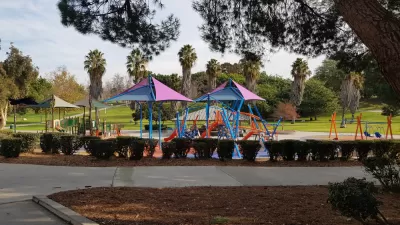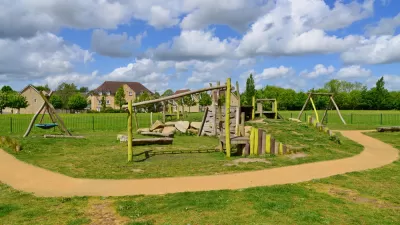Many rankings try to tell parents where the best places are to raise their kids. But measures that focus solely on narrow criteria like safety and schools often ignore the benefits of diverse, vibrant urban environments.

All parents want safe neighborhoods, nice parks, and good schools for their kids. But, sometimes, the places that offer those amenities are often lacking in many other attributes that help kids grow up smart, healthy, and happy. The blog Family Friendly Cities takes to task some of the common measures of "family friendliness" and argues that urban environments, which might score low in many categories, are often better for kids than high-scoring suburbs.
A safe neighborhood would seem to be a prerequisite for family life. But low-crime is not always synonymous with safe. While some neighborhoods may have little violent crime, they may yet be susceptible to the violence of automobile accidents—not to mention the other health effects of auto dependence. In those cases, "what we are likely to find is that many of our beloved and highly ranked sprawl communities wouldn’t rank so highly with their frequent auto collisions, lack of sidewalks and unsafe speed limits."
Low housing costs, and, therefore, the opportunity to live in large spaces would also seem to favor families. But high transportation costs, plus long hours spent in the car, in distant, low-density suburbs can offset what may seem like major savings on rent or mortgages. Similarly, kids in cities can get their education at museums and libraries even if schools are not ranked so highly. And the opportunities for social interaction can be just as valuable for kids as they are for adults. "If we are to truly assess whether a city is child and family friendly then we must acknowledge play and access to play as essential. This includes proximity to residences and the ability to access a diverse range of opportunities for recreation and play."
FULL STORY: What the 'Best Cities for Families' Rankings Get Wrong

Planetizen Federal Action Tracker
A weekly monitor of how Trump’s orders and actions are impacting planners and planning in America.

Map: Where Senate Republicans Want to Sell Your Public Lands
For public land advocates, the Senate Republicans’ proposal to sell millions of acres of public land in the West is “the biggest fight of their careers.”

Restaurant Patios Were a Pandemic Win — Why Were They so Hard to Keep?
Social distancing requirements and changes in travel patterns prompted cities to pilot new uses for street and sidewalk space. Then it got complicated.

Platform Pilsner: Vancouver Transit Agency Releases... a Beer?
TransLink will receive a portion of every sale of the four-pack.

Toronto Weighs Cheaper Transit, Parking Hikes for Major Events
Special event rates would take effect during large festivals, sports games and concerts to ‘discourage driving, manage congestion and free up space for transit.”

Berlin to Consider Car-Free Zone Larger Than Manhattan
The area bound by the 22-mile Ringbahn would still allow 12 uses of a private automobile per year per person, and several other exemptions.
Urban Design for Planners 1: Software Tools
This six-course series explores essential urban design concepts using open source software and equips planners with the tools they need to participate fully in the urban design process.
Planning for Universal Design
Learn the tools for implementing Universal Design in planning regulations.
Heyer Gruel & Associates PA
JM Goldson LLC
Custer County Colorado
City of Camden Redevelopment Agency
City of Astoria
Transportation Research & Education Center (TREC) at Portland State University
Camden Redevelopment Agency
City of Claremont
Municipality of Princeton (NJ)





























